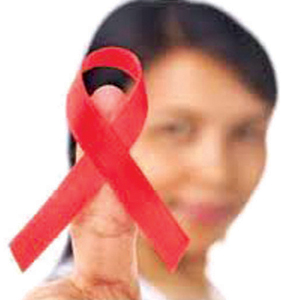
Mother to child transmission of HIV and syphilis elimination
A milestone in child health
TheNational Coordinator for the Elimination of mother to child transmission (EMTCT) of HIV and Syphilis Programme, Consultant Venereologist and Deputy Director, National STD AIDS Control Programme, Dr Lilani Rajapaksa told the Sunday Observer that the National STD AIDS Control Programme (NSACP) was pleased to share the success of its elimination of mother to child transmission of HIV and Syphilis Programme at the recent certification award ceremony conducted by the World Health Organization, in Geneva.
Citing reported data by the NSACP she said that by the end of 2019, there were 88 children infected with HIV due to mother to child transmission. Each year children are newly diagnosed with congenital syphilis.
Recalling the start of the Program in which she was the National Co-ordinator , Dr Rajapaksa said the Programme for Prevention of Congenital Syphilis had commenced in 1954 and prevention of mother to child transmission of HIV Program was set up in 2002. In 2013, the two programs were combined and further strengthened as Elimination of mother to child transmission (EMTCT) of HIV and Syphilis Programme. She said, “The main objective of the EMTCT was to achieve validation status for eliminating mother to child transmission of HIV and syphilis.”
Grassroots level
She said it was designed on a multidisciplinary approach, and the NSACP which is responsible for STD and HIV care services and the Family Health Bureau responsible for maternal and child health services worked closely to take services to the grassroots level through STD clinics and MOH offices in the districts. Provincial and district health authorities including PDHS, RDHS facilitated the implementation of the program in the communities and consultant Venereologists, Community physicians and medical officers of maternal and child health in the districts worked together to achieve a common objective with sustainability assured by government funding, she said.
 “With the launch of the EMTCT of HIV and Syphilis Programme in 2013, field-level health care workers providing MCH services were instructed to offer HIV and VDRL tests to all pregnant women. Leaflets and posters were developed to increase awareness on the importance of VDRL and HIV testing services. Health-care workers were trained on the services emphasising the voluntary testing approach. Laboratory facilities were improved to cope with the increased demand for HIV testing. Test kits and laboratory equipment such as ELISA machines were procured.
“With the launch of the EMTCT of HIV and Syphilis Programme in 2013, field-level health care workers providing MCH services were instructed to offer HIV and VDRL tests to all pregnant women. Leaflets and posters were developed to increase awareness on the importance of VDRL and HIV testing services. Health-care workers were trained on the services emphasising the voluntary testing approach. Laboratory facilities were improved to cope with the increased demand for HIV testing. Test kits and laboratory equipment such as ELISA machines were procured.
International funding agencies, namely UNICEF, World Bank and WHO supported the Programme. The Programme was started in 2013 covering the Western and Southern provinces. In 2014, the services were scaled up to cover the Northern, North-Central and North-Western provinces and the whole country was covered by end 2016,” she said.
By end 2018, the country had achieved the set targets. More than 95% of pregnant women were tested for HIV and syphilis. In the same year 16 pregnant women with HIV delivered uninfected babies. All pregnant women diagnosed with HIV or syphilis and their babies were managed by local teams including consultant Venereologists, Obstetricians and Paediatricians.
In July 2019, the Health Ministry made a formal request to WHO, presenting the country validation report. This was followed by the visit of the regional validation team (RVT) of experts, representing WHO South-East Asian Regional Office in mid-September 2019 to assess the elimination status.
After a thorough assessment, the regional validation team presented its report on the EMTCT Programme of Sri Lanka to the Global Validation Committee at WHO headquarters based in Geneva. “ We are pleased that the WHO headquarters, based on the decision of the Global Validation Committee, has now formally declared that Sri Lanka has eliminated mother to child transmission of HIV and syphilis. This Program contributed to the development of the country by assuring child health, reducing maternal illnesses and deaths and increasing accessibility to services for women in disadvantaged situations.
It normalised the HIV test and promoted open discussion on HIV. This achievement was possible due to the high commitment and dedication of all stakeholders. This certificate is testimony to the high quality of maternal and child health services and STI and HIV services in the country”, she said, adding that “Sustaining these achievements is the challenge as the high quality of services achieved need to be maintained.”
She said that this achievement would ,“have an inspiring impact on the resolve to end AIDS by 2025, five years ahead of the global target in 2030, a commitment undertaken by the country.”
